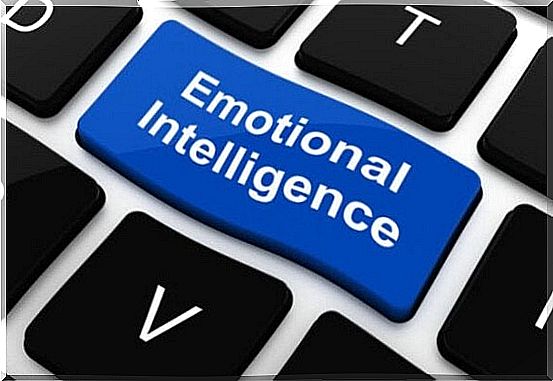Emotional Intelligence: The Importance Of Applying It Daily

Emotional intelligence is much more than a set of approaches and strategies that serve to better identify and manage our own emotions. Above all, we are talking about acquiring a true emotional awareness with which to build stronger and more respectful relationships, as well as being a power key with which we feel safer, more successful and happier.
We’ve all read about it, taken a course or heard about emotional intelligence in many contexts that are part of our social life: school, university, work… Much of the population relates these terms almost instantly with a name , that of psychologist Daniel Goleman.
Well, actually long before Goleman published his famous book “Emotional Intelligence” in 1995, this term had already appeared in the scientific world by the hands of Michael Beldoch in 1964 and in several articles. These spoke of communication and emotional sensitivity, its implications and how they determine our relationships and personality. Since then, the theme has advanced remarkably, giving rise to different approaches and criticisms.
There are many specialists who do not see scientific rigor in the subject, who do not accept the idea that emotional intelligence is “another” type of intelligence, but rather a domain of it, an ability. However, the implication that this psychological, social and motivational perspective had on our daily lives goes beyond the possible gaps that may or may not exist in Daniel Goleman’s theory.
Emotional intelligence improves our quality of life, interpersonal relationships, our own perception and even our professional competence. Furthermore, it is an approach that should structure most curriculum areas in schools, to educate more competent, safer and happier people.
The importance of applying this approach and this emotional awareness is key to improving our own personal and social reality. Let’s see why.

1. Emotional intelligence, the key to a more fulfilled life
As early as childhood, many of us were guided by the path of emotional restraint. Almost without knowing it, our parents and educators recommended that we not cry, “you’re a big kid”, “if you’re angry, take it” or that all-too-common expression “you take everything very seriously”.
The lack of sensitivity to one’s own or others’ emotional world still determines many scenarios that we go through in our daily lives. In the family sphere, this pursuit to camouflage emotions is still very present, not to mention our own work, where hierarchical organizations led by leaders focused on achieving immediate goals and who create an oppressive and stressful professional climate continue to prevail.
Goleman points out that emotional intelligence is present in any sphere of relationship, and that it has, in turn, a fundamental objective: to offer us a life of more fulfillment.
Reasons why emotionally intelligent people are happier
Think for a moment of Emotional Intelligence as an antenna. An antenna with dual capture: indoor and outdoor. Thanks to her, we learn to know ourselves better, to understand the skein of our emotions and, in turn, to understand others.
- Thanks to emotional intelligence we are more aware of ourselves.
- We handle our own emotional universes better.
- We develop greater emotional and cognitive empathy.
- We are more committed to ourselves.
- We build greater social awareness.
2. Emotional intelligence skills at work
The work paradigm is changing. Realities already as close as the possibility of more automated work or work performed by machines or robots lead specialists in this area to warn us of something very feasible: in the future, technical knowledge will not be valued, but personal skills will be prioritized.
Therefore, skills such as creativity, critical thinking, ingenuity and emotional intelligence are key elements for a more automated professional world. A field in which professionals need to be good that until now was not considered much.

Emotional intelligence applied to work enables us to develop the following skills:
self-awareness
- Emotional awareness: knowing how to recognize our emotions and the emotions of others at all times.
- Emotional self-assessment: knowing how to recognize our strengths and limitations.
- Self confidence.
- Self-Control: The ability to maintain control in critical situations.
- Trust: the importance of being honest and upright.
- Adaptability: flexibility to embrace change.
- Innovation: the importance of accepting and being an agent of new ideas and approaches
Motivation
- Conquest orientation to achieve excellence.
- Commitment to be part of the organization’s goals.
- Initiative and anticipation.
- Optimism and persistence.

3. Emotional intelligence as a “fuel” in children’s education
Emotional intelligence is a power key with which to develop in children their ability to build more positive relationships with their families and peers, to develop a more balanced outlook on life, and to achieve in turn good academic potential. at school. In the end, being able to manage and understand one’s emotional world implies having in your hands an exceptional channel for learning, attention, memory, to control frustration…
On the other hand, an interesting thing that celebrated 19th century physician William Osler warned is that children make their emotions their first language, this is how they understand the world, how they communicate, demand, express, interact and explore, and just as they begin to develop their consciousness.
We need, therefore, to be their guides, their mediators and translators of these emotional labyrinths that in seconds place them in the corner of vulnerability or in the cubicle of frustration that sometimes drags on into adulthood.

Emotional intelligence gives us the basic keys and the structure that should be part of this everyday substrate where the child moves in their daily lives. These are seeds of power and well-being that we should sow in their minds and hearts:
- Identification of own emotions. Children need to learn early to recognize and discriminate each of their emotions, label and name them.
- Emotional state management. As a little one grows and matures, they need to acquire certain skills when dealing with and controlling their emotions.
- Self motivation. Another sensational strategy is to be able to channel your emotions towards a specific goal, an everyday motivation that leads you to achieve your goals, your desires.
- Empathy. The importance of acknowledging others’ feelings and tuning in to their verbal and nonverbal cues is crucial.
Finally, a fundamental strategy in the education of our children is to enhance in them the correct management of interpersonal interaction, where assertiveness and social skills to negotiate and resolve conflicts will undoubtedly offer them good strengths for their daily lives.
In conclusion, as we could see, the field of emotional intelligence ties, nourishes, and revitalizes every area of our lives. Let us make it our fuel, the wind that propels the sails of our lives in these complex and shifting seas.









